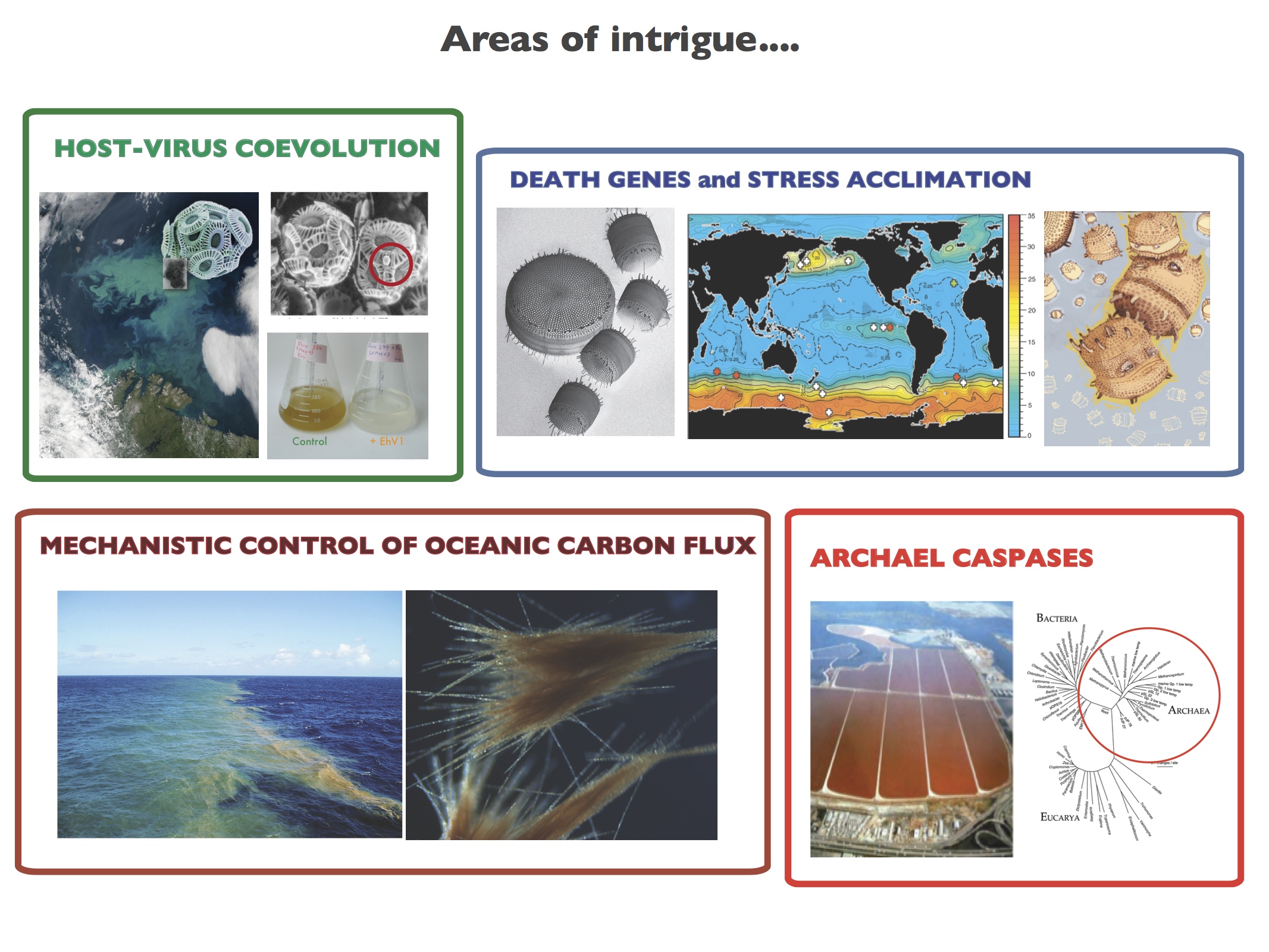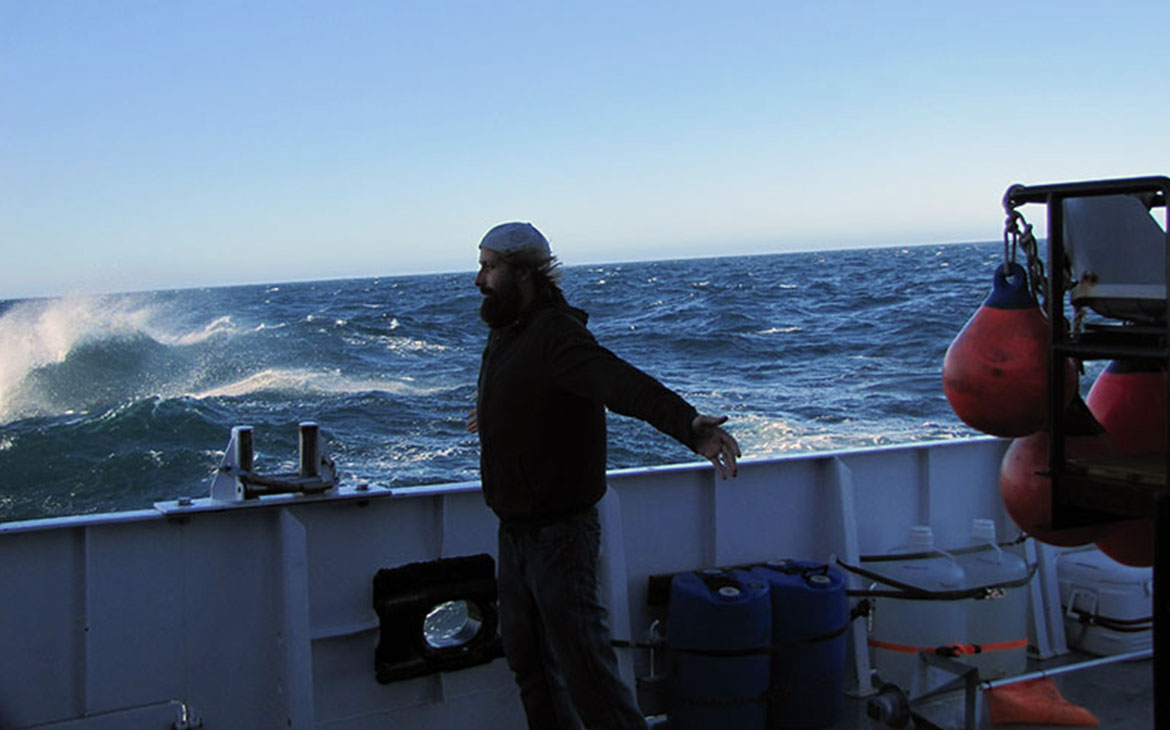Research Interests: My research explores the impact of marine microorganisms on the ocean. Marine microbes (i.e., phytoplankton, bacteria, viruses) account for >95% of all oceanic biomass and their dynamic activities drive oceanic biogeochemical cycles. Yet, we are faced with fundamental open questions about their activity, molecular diversity, and evolution. As a molecular ecologist, I am particularly interested in how specific classes of microbial genes influence the ocean’s ecology and dictate the fate of organic matter in the oceans. It is the genetic imprint of marine microbes and their interaction with the environment that shape how the ocean works and determine its response to environmental change. My research links the activity, diversity, and evolution of microbial genes to ocean ecology and biogeochemistry. By merging physiology, biochemistry, and genome-enabled molecular biology approaches, my work aims to elucidate cellular strategies by which marine phytoplankton, bacteria, and viruses interact and respond to environmental change (e.g. blooms, nutrient stress, viral infection) and, in turn, shape ecosystem dynamics and microbial evolution in the upper ocean.
Phytoplankton, unicellular photoautotrophs that drift with the currents, regulate the cycling of elements in the ocean largely through photosynthesis and nitrogen fixation. These elements include, but are not limited to, carbon, oxygen, nitrogen, phosphorus, silicon, sulfur and iron. The influence of marine phytoplankton is perhaps most notable in the oxygenation of the Earth’s atmosphere and the removal of fixed CO2 to deep waters through photosynthesis and sinking, via a process called the ‘biological pump’. With average concentrations of 106-107 cells ml–1, the oceans also team with diverse assemblages of viruses and bacteria, which infect, lyse, colonize, and rapidly degrade phytoplankton using specialized biochemical strategies. Consequently, an average of ~50% of global primary productivity is rapidly recycled in the ocean’s upper water column, diminishing the efficiency of the biological pump. My research program focuses on the molecular and cellular mechanisms that shape the success of microbes in the oceans by dictating their environmental response, determining cell fate, and coupling organic matter to microbial ecosystems or vertical flux pathways. My work employs aspects of marine microbiology, algal physiology, mortality, virology, molecular evolution, and molecular ecology to address a few distinct, yet unified themes. These include:
- Molecular mechanisms of phytoplankton mortality
- Evolutionary maintenance and ecological relevance of programmed cell death pathways
- Host-virus coevolution
- The relationship between death genes and stress acclimation
- Mechanistic control of oceanic carbon flux
- Identity and roles of Archaeal caspases
Research Lab: The Environmental Biophysics & Molecular Ecology Program


